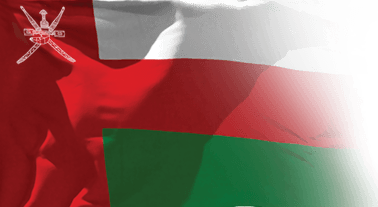
On behalf of His Majesty, Sayyid Asaad chairs Oman's delegation at the Gulf-European Summit
On behalf of His Majesty Sultan Haitham bin Tarik, His Highness Sayyid Asaad bin Tarik Al Said, Deputy Prime Minister for International Relations and Cooperation Affairs and Special Representative of His Majesty the Sultan, chaired Oman’s delegation at the first joint summit between the Gulf Cooperation Council (GCC) and the European Union (EU), held in the Belgian capital, Brussels.
Upon his arrival at the EU headquarters for the summit, His Highness was received by Charles Michel, President of the European Council, and Ursula von der Leyen, President of the European Commission.
In his address at the summit’s opening, His Highness conveyed the greetings and best wishes of His Majesty Sultan Haitham bin Tarik for the success of the summit.
He highlighted that this first summit marks a significant milestone, reflecting the shared vision between the GCC and the EU to expand strategic partnerships and deepen cooperation across various sectors, especially in economic areas such as trade, investment, renewable energy and facilitating the movement of business people, tourists and students between the regions.
Additionally, he emphasised the importance of enhancing political and diplomatic cooperation to reinforce the pillars of security, stability and peace.
His Highness stressed that cooperation, whether political, economic, cultural or technological, is the bridge that will enable both regions to effectively confront common challenges.
He praised the EU’s openness and its role in fostering positive transformation worldwide, contributing to peaceful coexistence and enriching intercultural dialogue.
His Highness expressed Oman’s support for positions aligned with the GCC and the international community’s calls for an immediate ceasefire in Gaza and the recognition of the State of Palestine, acknowledging this as a reflection of the Palestinian people’s right to self-determination and reinforcing the two-state solution to the Palestinian-Israeli conflict.

His Highness said Oman also supports the international coalition working to implement the two-state solution, announced by Saudi Arabia on behalf of the Arab-Islamic Ministerial Committee, in partnership with Norway and the EU.
He added that Oman welcomes the call by French President Emmanuel Macron to halt arms exports to Israel, viewing it as a crucial step in global efforts to cease hostilities in Gaza, protect civilians and prevent further Israeli aggression in Lebanon, which poses a significant threat to regional stability.
His Highness urged the international community to take decisive action to address these developments, applying international law to ensure an immediate ceasefire and to promote justice, security and peace for all.
The summit, co-chaired by Sheikh Tamim bin Hamad Al Thani, Emir of Qatar (current holders of the GCC presidency) and Charles Michel, President of the European Council, discussed ways to strengthen cooperation on major global challenges, economic cooperation, trade, investment, energy, sustainability, climate and visa facilitation.
The geopolitical challenges in the Middle East and the Ukraine conflict were also addressed.
The Secretary General of the GCC, Jasem Mohamed Albudaiwi, called for a ceasefire in Gaza and urged pressure on Israel to allow aid into the area. He emphasised the importance of the Saudi initiative for a two-state solution, noting that GCC countries continue their efforts to resolve the crisis in Gaza.
President Ursula von der Leyen also called for an end to the dangerous escalation in the Middle East, reiterating the Commission's commitment to the two-state solution and a ceasefire in both Gaza and Lebanon.
The summit discussed ways to strengthen cooperation in addressing key global challenges and economic collaboration, including trade, investment, energy, sustainability, climate change and enhancing people-to-people connections. It also touched on visa facilitation and the multiple geopolitical challenges, particularly in the Middle East and Ukraine.
The Emir of Qatar delivered a speech in which he stated that the Gulf-European Summit reflects enhanced cooperation between the two sides. He condemned the Israeli attacks on Lebanese territory and UNIFIL forces, as well as the failure to implement UN Resolution 1701 regarding Lebanon.
He highlighted that a ceasefire should form the basis for negotiations leading to a just solution and the establishment of a Palestinian state. He called on European countries to recognise Palestine and urged for a greater European role in holding Israel accountable for its actions, with the aim of reaching a comprehensive and just solution to the Palestinian issue. He also noted the ongoing mediation efforts regarding Gaza in cooperation with Egypt and the US.
President Charles Michel, in his speech, mentioned that the EU and the GCC are ready to build a strategic partnership, pointing out that global stability is threatened by the situation in the Middle East.
This summit held great significance as it marked the first meeting between the two organisations attended by heads of state and government from both sides, elevating the strategic cooperation between them.
For more on the summit and its potential outcomes, click here.
This is an unofficial English version of an Arabic report. To view the official Arabic text, click here.



